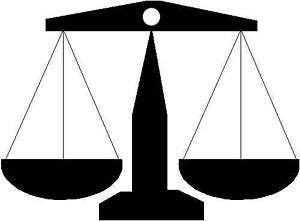Modern Bartering Becoming More Commonplace

What is modern bartering? Well, you may be seeing it (or doing it) more and more…
Modern Bartering Reborn
I first wrote about ‘bartering’ here on the blog during 2010, a period of time just exiting the “Great Recession”. In fact it was this very article – which I just ‘revamped’, given the relevance with today’s ongoing recessionary period following Covid. Coupled with the absolutely enormous economic bubbles that will surely burst and wreak havoc in our future at some point.
(2007 – 2009) The subprime mortgage crisis led to the collapse of the United States housing bubble. Falling housing-related assets contributed to a global financial crisis, even as oil and food prices soared. The crisis led to the failure or collapse of many of the United States’ largest financial institutions: Bear Stearns, Fannie Mae, Freddie Mac, Lehman Brothers, and AIG, as well as a crisis in the automobile industry. During that time, the government responded with an unprecedented $700 billion bank bailout and $787 billion fiscal stimulus package.
List of recessions in the United States
During that ‘great recession’, it was obvious that the barter system made a comeback. You might call it ‘modern bartering’ during modern times. Many people were experiencing great financial difficulties and job losses. Some of those people were getting themselves further into debt, just to buy the items they needed. But others were increasingly bartering for goods and services.
Many of us have heard of the term ‘barter’, or bartering. But if you’re like most people, the image that comes to mind is that of a poor farmer paying the small town doctor for his clinical services with one of the chickens from his farm. From days long ago…
Webster’s dictionary tells us the definition of barter is to trade by exchanging one commodity for another.
Bartering systems have been around in most cultures since before money was created. For example, during the colonial era, money was scarce so the colonists used bartering as a primary means of procuring the goods or services they needed. They would trade such items as musket balls, tobacco, beaver pelts and deer skins. By the way, the later (deer skins) is where we derived our modern slang term ‘buck’, or bucks, meaning ‘dollars’. People who had items or services to sell would exchange them with others for the things they needed.
Bartering enables getting the items you need without having to part with actual government currency
It allows you to trade. Maybe items that you no longer need, to get the items you do need. Good negotiating makes the barter system work at its best. A good negotiation means both parties feel they have made a good deal and will walk away happy.
Often times ‘services’ can be a far more valuable trade commodity than a physical item
One thing to bear in mind concerning the barter system is that you don’t have to be trading items. Perhaps you are a plumber and your neighbor works as an automotive mechanic. Your truck needs a brake job and your neighbor has a dripping water leak somewhere underneath the kitchen sink. After a little chatting and negotiating, you’ve got a fair trade!
Everyone has a service they can barter, just be creative.
Modern Bartering is a natural fit in local communities
Bartering also makes for good neighbors. In our neighborhood, talking with people we already knew, led us to other neighbors with talents we were looking for, but we hadn’t made their acquaintance yet. Word of mouth truly can be the best advertising. When times are difficult, your local community and neighborhood can be your best asset.
I think whilst goods are great trade and barter items, you can never beat trading a skill for something you need.
If post SHTF you have a skill that nobody else has in your group/community has you are going to be a scarce resource and people will offer you food and water in exchange for your skill.
I think what they teach in schools about getting a trade and getting qualified is good advice.
~ Dave
I barter quite regularly to get things done on my ranch, and to get equipment and supplies. I’ve bartered for everything from baling hay to “purchasing” vehicles.
It’s common in an agricultural setting – so much so, that the government wants farmers/ranchers to report bartering as income. Yes, it’s on the tax form – the value of goods and services attained via barter. Hah!
~ CNC
One more thought… If they implement some sort of digital currency, a digital dollar, a FedWallet… this is really going to kick start modern bartering outside the system.
[ Read: The Most Valuable Items For Barter After The Collapse ]
[ Read: Valuable Services For Barter After Collapse Or SHTF ]
